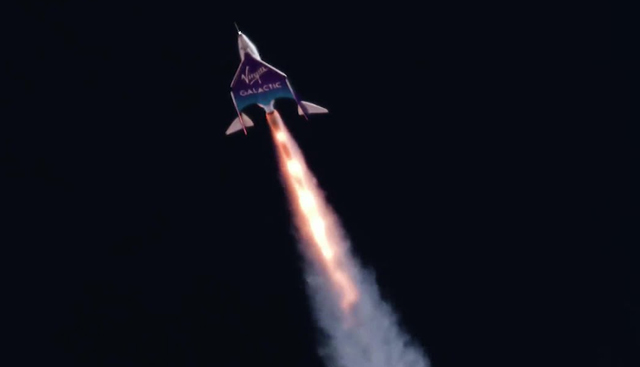
WASHINGTON, June 8, 2024 (BSS/AFP) - Virgin Galactic is poised on Saturday
for its last spaceflight before heading into a two-year pause on commercial
operations to upgrade its fleet, as the company seeks to finally turn a
profit.
The "Galactic 07" mission is scheduled to begin at around 8:30 am Mountain
Time (1430 GMT) from the company's base in Spaceport, New Mexico, a spokesman
said.
A huge carrier plane takes off from a runway, gains altitude for around 50
minutes, and then releases from under its wings a spaceplane that soars at
supersonic speed to the edge of space, where passengers can enjoy a few
minutes of weightlessness and admire the Earth's curve.
On board will be two pilots and four private astronauts. One of them is Tuva
Atasever, a Turkish space agency astronaut whose seat was contracted through
another space company, Axiom, while the names of the other three will likely
be disclosed afterwards.
It will be the seventh commercial flight for the company founded in 2004 by
British tycoon Richard Branson, in an emerging suborbital tourism market
where its main competitor is Blue Origin, owned by Amazon billionaire Jeff
Bezos.
It will also be the final flight for its current spaceplane called VSS Unity,
which it intends to replace with two next-generation "Delta class" ships,
currently under construction in Arizona, with test flights due in 2025 before
commercial operations in 2026.
The future of the company is at stake as it seeks at long last to get into
the black. Virgin is burning through cash, losing more than $100 million in
each of the past two quarters, with its reserves standing at $867 million at
the end of March.
It also laid off 185 people, or 18 percent of its workforce, late last year.
Its shares are currently trading at 85 cents, down from $55 in 2021, the year
Branson himself flew, garnering global headlines.
While similar in appearance to Unity, the Delta ships will carry six
passengers, compared to the current four. Seat prices will be set at $600,000
and up to 125 flights are projected per year, the company says, hoping to
turn around its fortunes.
Some are skeptical, however.
"Virgin Galactic investors can look forward to owning a stock generating
essentially zero revenue for the next 18 to 30 months -- and that's if
everything goes as planned, and the Delta program doesn't get delayed," The
Motley Fool wrote in a note to investors this week.
Blue Origin, which launches on a small suborbital rocket, resumed crewed
flights in May after its own hiatus of nearly two years, though it
experienced an anomaly with one of the three landing parachutes failing to
fully inflate, which could delay the next mission.